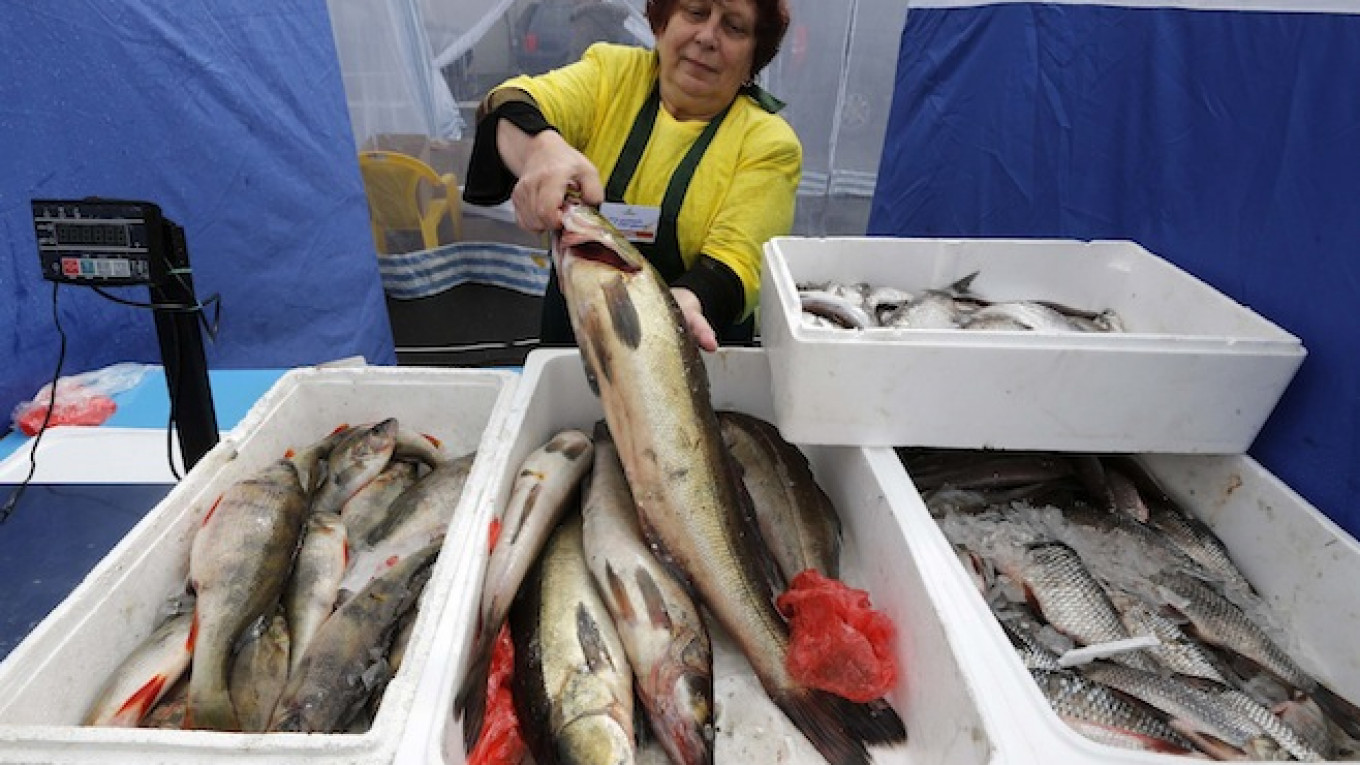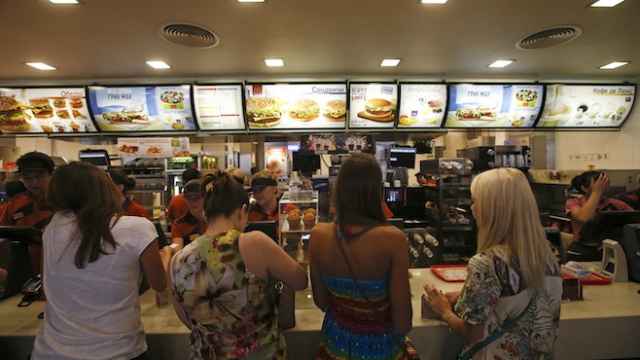The European Union is looking at possible financial support measures for fish exporters hit by Russia's ban on Western food imports, now well into its first month, the EU's executive arm said.
Moscow last month imposed a one-year embargo on meat, fish, dairy, fruit and vegetables from the United States, the EU, Canada, Australia and Norway in retaliation for Western economic sanctions over Moscow's involvement in the Ukraine crisis.
The European Commission, the EU executive, said Tuesday it was in contact with the British, Finnish and Danish authorities and was assessing the damage done by the ban, which has already inflicted pain on Europe's exporters of fruit, vegetables and dairy products.
Fish exporters could temporarily store their unsold produce to prop up prices and receive financial compensation from the European Maritime and Fisheries Fund, which has a budget of 6.4 billion euros ($8.40 billion) over six years.
The main fish exporters to Russia in 2013 were Denmark, Latvia, Ireland, Estonia, Spain, France and Britain.
"The Commission is monitoring the situation and striving to achieve a coordinated and appropriate response for all sectors affected by the ban, including the fisheries sector," the Commission said in a statement.
Russia is the EU's sixth export market for fisheries products, importing 199 million euros worth in 2013, the Commission added.
The fish products affected by the ban are live, fresh, chilled, frozen, salted, in brine and smoked fish, mollusks and crustaceans.
Exporters of fruit and vegetables have already been promised 125 million euros ($164.05 million) to deal with supply gluts.
Help for the dairy sector has also been mobilized. Industry sources have estimated these measures could cost between 10 million euros and 20 million euros.
Agriculture ministers from all 28 EU member states will hold an emergency meeting on Friday to discuss the impact of the Russian import ban.
A Message from The Moscow Times:
Dear readers,
We are facing unprecedented challenges. Russia's Prosecutor General's Office has designated The Moscow Times as an "undesirable" organization, criminalizing our work and putting our staff at risk of prosecution. This follows our earlier unjust labeling as a "foreign agent."
These actions are direct attempts to silence independent journalism in Russia. The authorities claim our work "discredits the decisions of the Russian leadership." We see things differently: we strive to provide accurate, unbiased reporting on Russia.
We, the journalists of The Moscow Times, refuse to be silenced. But to continue our work, we need your help.
Your support, no matter how small, makes a world of difference. If you can, please support us monthly starting from just $2. It's quick to set up, and every contribution makes a significant impact.
By supporting The Moscow Times, you're defending open, independent journalism in the face of repression. Thank you for standing with us.
Remind me later.






